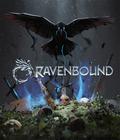Gamescom isn't traditionally known to reveal a lot of major new releases, but if you're on the lookout for interesting indies and AA experiences, you sometimes get lucky. Ravenbound is such a game. Developed by Systemic Reaction, Ravenbound combines an open world with roguelike elements, which is a surprisingly distinct premise given the wave of roguelites popping up left and right. It also means there is a market with a lot of great competition, which isn't an easy task. We sat down with Systemic Reaction for a brief look at an early version of Ravenbound at Gamescom 2022.
Ravenbound is a change of pace for the studio best known for online co-op experiences like Generation Zero and Second Extinction. Ravenbound is a single-player roguelite experience in an open world with pretty much no online component that we know of. There's an expressed goal that Ravenbound is going to foster a great community. After seeing a 20-minute hands-off demo, I'm intrigued, but I acknowledge that I've likely only seen the tip of the iceberg that is Ravenbound.
Play, die, repeat: the mantra of any game with roguelike elements. Ravenbound is no exception. Choose a vessel you want to control based on its randomized attributes and character class, and then it's time to head out, beak-first. The player will have the choice to enter five different regions of the world, each with a unique boss waiting at the end. If you defeat any three of the five, the final challenge awaits. That just sounds like any old roguelike, though. Where does the open world come in?
Each open world region you visit will remain the same for each run, but the outpost and challenges within it get randomized. Different folklore enemies like Draugr await at varying positions, and some are marked to hold one of three keys to unlock the boss in that region. The rest can be used as cannon fodder to level up and acquire additional gear to aid you in battle.
It truly is an open world. If you were to walk the required distances, you'd be at it for a while, so it's a good thing that you're not gravity bound. The player enters each world in raven form, able to traverse the world in flight until a suitable altercation has been located, switching back to human form to defeat the selected target. Players can discern the relative difficulty and enemy types based on the iconography on the map of each encounter, so it's easy to locate the combat encounters you want to attempt. Beware that you can't freely switch back into raven form; for that, you have to find specific portals in the world.
We can only describe the combat of Ravenbound based on footage we've seen, but I was surprised at how appealing it looks in this early state. Combat clearly requires skill and timing, enemies can be staggered, attacks can be dodged, and special buffs or debuffs may also come into play depending on gear and abilities. It's a combat system that incentivizes offensive play and increases your damage output as long as your hits connect. Being idle or evasive eventually drops your energy level and damage. During our brief glimpse, we saw several combat scenarios leading up to a pre-boss fight, all of which appeared to be quite satisfying to play, and Ravenbound offers a good amount of variety to ensure combat doesn't get stale. Players must master the combat mechanics and the build techniques to maximize their effectiveness.
The crux of each roguelike is its progressions systems. Ravenbound manages most of this through basic deck building. Earning an encounter or finding a chest may reward cards to equip to your build — if you can afford its mana cost. This could be equipment like a new weapon or set of armor or more immediate remedies, like potions. The progression within a run mainly hinges on getting a good deck and build together and to level up while doing so, since each level generates mana to spend on those cards. That said, you can also head toward a town, take on a special town quest for additional rewards, or dabble with the townsfolk to stock up on supplies. Ravenbound also has progression in between runs via a special currency that can unlock new character traits. Available starting vessels are randomly generated at the start of each run based on your classes and unlocked traits, so having more variety eventually gets you a better selection of randomized starting characters.
Systemic Reaction has a history of working with the community to improve its games post-launch. While we did not get any specifics in terms of the launch date or launch plan (like an early access period, for example) for Ravenbound, the developer has made it clear that there's much more to come. Ravenbound looks to be a tough roguelike experience that you have to master, with a lot of systems and intriguing factors that influence every run. I liked the fast-paced and challenging-looking combat, and I enjoyed getting around the game world in raven form. Ravenbound checks a lot of boxes, but we'll have to wait and see if everything comes together in the end. It has the potential for a new and deep take on what a roguelike game can achieve.
More articles about Ravenbound












 Ravenbound is a challenging open-world action/roguelite where you master steel and tactical combat skills to survive in a dangerous fantasy realm where each death brings you closer to victory.
Ravenbound is a challenging open-world action/roguelite where you master steel and tactical combat skills to survive in a dangerous fantasy realm where each death brings you closer to victory.







